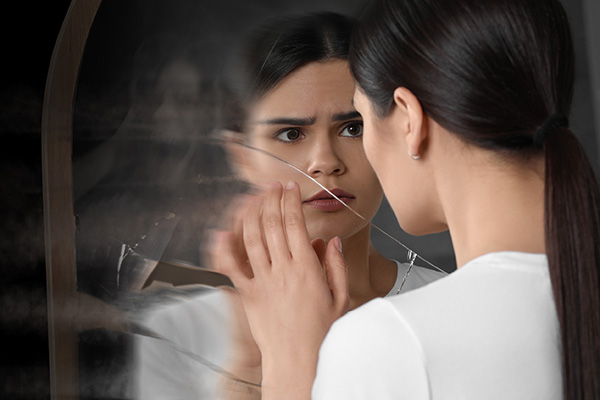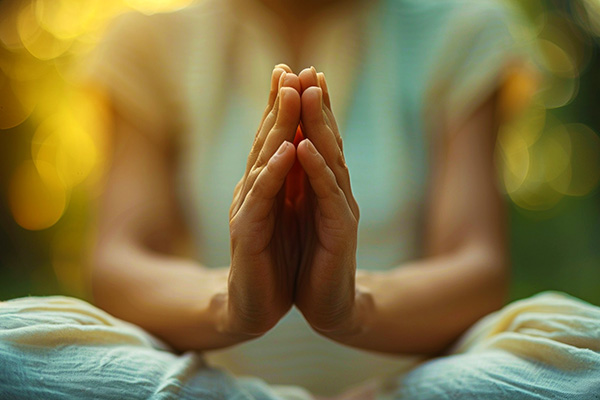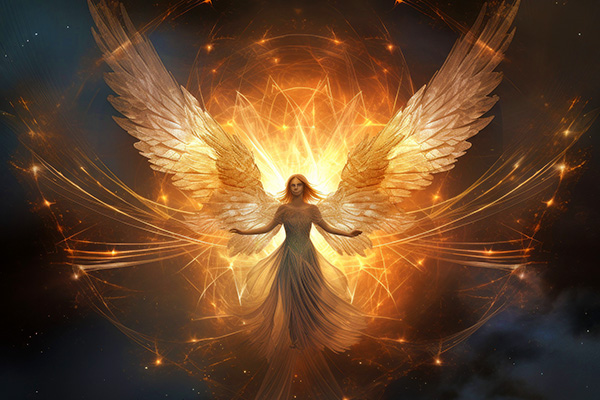spiritual wisdom
Why You Need To Be Honest With Yourself
 As a professional psychic, I frequently see clients stuck in unfulfilling relationships or careers, yearning for a deeper sense of happiness and purpose. Many of these individuals are forced to navigate a societal norm that encourages them to settle for less than what they deserve.
As a professional psychic, I frequently see clients stuck in unfulfilling relationships or careers, yearning for a deeper sense of happiness and purpose. Many of these individuals are forced to navigate a societal norm that encourages them to settle for less than what they deserve.
Furthermore, many of us were taught to avoid confronting our problems. This is wrong. We must face the root causes head-on, choosing temporary distractions over them.
This approach may provide a brief sense of comfort, but it is ultimately a futile attempt to perpetuate cycles of dissatisfaction. If you find yourself at a crossroads—questioning a toxic relationship, a stagnant career, or an unfulfilling life path—it is time for a transformative shift. The journey begins with radical honesty.
We must be brutally honest with ourselves. This is not self-criticism. It is self-love. Spiritually empowered people take responsibility for what they can change and refuse to make excuses. When we do this, we empower ourselves to move toward a more authentic, fulfilling life.
Denial and a lack of self-love are holding you back. The truth is our liberator. It shows us the way to greener pastures and a higher vibrational frequency.
Facing your inner truth is uncomfortable. Get over it. Embrace the temporary disruptions of change. It often demands that you release relationships, habits, or patterns that no longer serve your highest good. These shifts might initially feel like losses, but they are blessings in disguise. Each adjustment creates space for new, more aligned opportunities to manifest in your life.
Seeing The Spiritual Essence In Others
 My world was turned upside down when my father was diagnosed with pancreatic cancer. For seven agonizing months in 2005, I became his caregiver, managing the extreme emotional and physical toll of his illness.
My world was turned upside down when my father was diagnosed with pancreatic cancer. For seven agonizing months in 2005, I became his caregiver, managing the extreme emotional and physical toll of his illness.
Even the hospice staff, experienced in end-of-life care, commented at the time that my father was not an easy patient to care for. Their observation confirmed my own feelings on the matter and highlighted the unique challenges of the difficult karmic relationship I had with my father.
Throughout this stressful time, I held out hope for a miracle. I felt compelled to seek guidance, but unfortunately Spirit revealed a timeline of six to twelve months. This devastated me at the time, but I’ve since come to accept that arrivals and departures are part of every soul’s journey. Spirit was simply confirming a poignant truth: at some point we are all called home to the spirit realm.
Despite his resistance to any form of treatment, my father allowed a trusted colleague of mine, a master in his healing modality, to visit our home weekly for body alignment sessions. These sessions became a turning point — not only for my father, but for me as well.
During their second session, my healer friend shared an observation that struck a deep chord. He sensed an immense amount of bitterness and resentment in my father, energies he had perceived without any prior knowledge of my father’s emotional state or life history. He then offered me a piece of wisdom that changed the way I viewed not only my father, but all of my relationships: “Try to see only the true spiritual essence that is your father.”
How To Deal With Negativity And Toxic Drama
 Many people today feel overwhelmed, angry, frustrated, fearful. This is especially evident online in the social media landscape. Unfortunately, too often this leads to attacks on others, including innocent people and companies.
Many people today feel overwhelmed, angry, frustrated, fearful. This is especially evident online in the social media landscape. Unfortunately, too often this leads to attacks on others, including innocent people and companies.
It can be challenging to know how best to deal with all this toxic negativity. I believe it’s best to approach this issue spiritually, from a metaphysical or energetic standpoint.
Energy, whether positive or negative, grows when we feed it. Consider a plant: in order to thrive, it needs water, sunlight, and nutrients from the earth. If neglected, it will wither. The same principle applies to our interactions with the world around us: by paying attention to something, we feed it with our energy.
This is crucial to remember when dealing with any kind of negativity, both online and in person. To thrive energetically, we must be selective about who and what we pay attention to.
Huna, an ancient Hawaiian spiritual tradition, teaches that energy flows where attention goes. Every time we choose where to direct our energy, we’re making an active choice about what we want to grow in our lives. When we respond to negativity – whether with anger, defensiveness, or frustration – we end up reinforcing the very things we want to avoid. To maintain peace and harmony, huna advises focusing on positive intentions and constructive energy.
By giving toxic energy thieves our attention, we allow their negaivity to take root in our hearts and minds. Feeding negativity or drama only strengthens it, which ultimately affects our own well-being. When we consciously choose to withdraw our energy from negative influences and redirect it to uplifting and positive areas, we create an environment where peace and growth can flourish.
Start Living Your Best Life, Today!
 Many years ago, my work took me to the lavishly decorated penthouse of a client who was a retired physician. I remember being in awe of the magnificent collection of books that lined the walls of his home.
Many years ago, my work took me to the lavishly decorated penthouse of a client who was a retired physician. I remember being in awe of the magnificent collection of books that lined the walls of his home.
“Your book collection is truly amazing,” I remember saying as I entered his beautiful home.
“Well, I worked very hard all my life, and one of my little pleasures outside of work was to buy all the books I felt inspired to read. Unfortunately, because I was always so busy and worked very long hours, I had put off reading most of them. But I constantly reminded myself that one day, when I retire, I would read all these wonderful books,” he said. “Unfortunately, it is too late for that now.”
It was too late…because he had tragically gone blind from an illness.
I will never forget that heartbreaking moment, standing in that lovely room lined with some of the most wonderful works of literature ever published. To this day, it reminds me of the importance of doing the things that bring us joy while we can.
The moral of the story is that although the blind doctor did wonderful things for his patients and the medical profession, he didn’t take much time for his own joy and fulfillment in the present moment.
This is why we need to live our lives in the now! Too often we put off our passions because we think there’s always time. But living fully in the present allows us to appreciate each moment, which fuels joy and fulfillment.
The Spiritual Wisdom Of Letting Go
 I sometimes do readings for clients who feel they have to control absolutely everything in their lives. They are rarely calm, rarely happy, always frazzled. There’s a constant tension around them, a palpable anxiety, as if they’re always one step away from a meltdown, or even a complete breakdown.
I sometimes do readings for clients who feel they have to control absolutely everything in their lives. They are rarely calm, rarely happy, always frazzled. There’s a constant tension around them, a palpable anxiety, as if they’re always one step away from a meltdown, or even a complete breakdown.
Many of us have experienced this feeling or seen it in others – the compulsion to control every outcome, every detail, believing that by sheer force of will we can make life bend to our wishes.
But here’s the thing: life has a way of moving on its own, whether we like it or not. And often, the more we try to grasp and hold on, the more things slip out of our control.
A song that often comes to mind when I think about this is the song Let It Be by the Beatles. Let it be, let it be. There will be an answer, let it be. This timeless classic is a simple yet powerful reminder of the peace that can come from stopping to resist and simply allowing things to unfold as they are meant to.
Letting go is not about giving up; it’s about trusting that life has a rhythm, a universal flow, and when we align ourselves with it, life becomes infinitely more peaceful and enjoyable.
In my work as a psychic consultant, I’ve found that those who feel the need to control every aspect of their lives often carry a heavy burden of stress. They struggle to find joy because they are too preoccupied with micromanaging every little detail. Life becomes a series of hurdles and challenges, and instead of going with the flow, they are constantly swimming against the current. It’s exhausting and soul-destroying.

